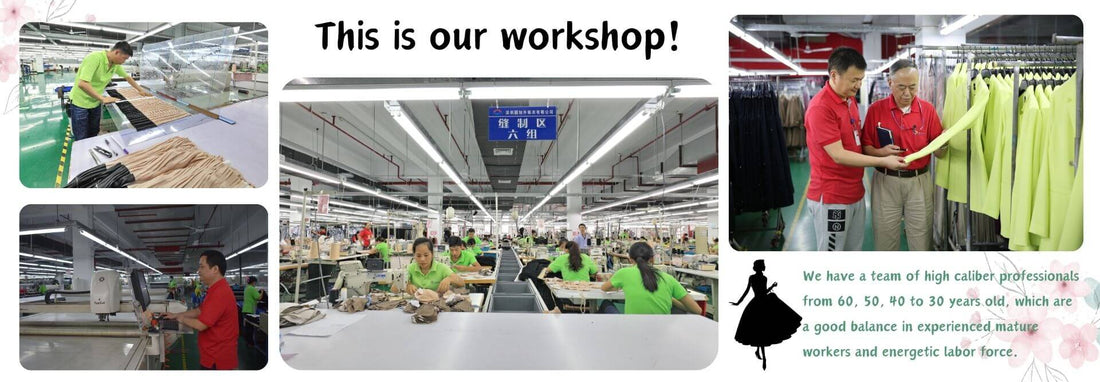Share
Sustainability and Innovation: Key Trends in Women’s Fashion Manufacturing

The women’s fashion industry is constantly evolving, driven by new technologies, consumer demands, and a growing focus on sustainability. As a factory with 35 years of experience producing high-quality women’s clothing for top American and European brands, we’ve witnessed first-hand how these trends are shaping the future of garment production. In this blog, we’ll explore some of the most significant trends impacting the industry today and how manufacturers like us are adapting to meet the challenges and opportunities they present.
1. The Rise of Sustainable Fashion
Sustainability is no longer just a buzzword—it’s a core value that consumers demand from their favorite brands. As awareness of environmental issues grows, more consumers are seeking out eco-friendly fashion choices. This shift has pushed brands and manufacturers to prioritize sustainable practices throughout the supply chain.
At our factory, we have embraced this trend by specializing in the use of natural, eco-friendly fibers such as silk, viscose, cotton, and linen. These materials not only offer superior comfort and quality but also reduce the environmental impact of clothing production. By choosing fabrics that are biodegradable and sustainably sourced, we’re contributing to a more responsible and ethical fashion industry.
2. Transparency in the Supply Chain
In today’s digital age, consumers expect transparency from the brands they support. They want to know where their clothes come from, how they’re made, and the impact of production on both the environment and workers. This has led to a growing demand for traceability in the supply chain, from raw material sourcing to the finished product.
Brands are now partnering with manufacturers who can provide clear documentation of their sourcing practices and labor conditions. Our factory has responded by ensuring full transparency at every stage of production. We maintain strict quality control measures and ethical standards, offering our clients the assurance that their garments are produced responsibly and in compliance with international labor and environmental standards.
3. The Demand for Customization and Personalization
Another significant trend in the women’s fashion industry is the rise of customization and personalization. As consumers look for unique, one-of-a-kind pieces, brands are turning to manufacturers who can offer tailored solutions. Whether it’s creating garments based on specific design sketches or producing made-to-order collections, customization is becoming a key differentiator in the market.
Our factory excels in producing garments that meet exact client specifications. With our extensive experience in complex garment craftsmanship, we have the skills and flexibility to adapt to a wide range of design requests, ensuring that each piece is as unique as the brand behind it. This ability to provide bespoke solutions is becoming increasingly important as more brands seek to cater to niche markets and individual customer preferences.
4. The Shift Toward Ethical Manufacturing
Ethical manufacturing practices have become a top priority for fashion brands. As consumers become more socially conscious, they want to support brands that prioritize fair labor practices, safe working conditions, and responsible sourcing. This has led to a shift in the industry toward factories that uphold the highest ethical standards.
Our factory has always placed a strong emphasis on ethical manufacturing. We believe that creating high-quality garments should never come at the expense of worker welfare or environmental sustainability. By adhering to strict ethical guidelines, we ensure that our clients can trust us to deliver not only exceptional products but also a positive impact on the communities and environments where we operate.
5. Adopting New Technologies in Manufacturing
Technology is playing a pivotal role in revolutionizing the fashion industry, particularly in garment manufacturing. From 3D design tools to automation in production processes, manufacturers are leveraging innovative technologies to improve efficiency, reduce waste, and enhance the overall quality of their products.
Our factory has been proactive in adopting new technologies that streamline production and ensure consistent quality. Whether it’s using advanced pattern-making software or employing automated machinery for precision cutting, we’re always looking for ways to enhance our capabilities and offer our clients the best possible results.
Conclusion
The women’s fashion industry is undergoing a period of rapid transformation, driven by consumer demands for sustainability, transparency, and customization. As manufacturers, it’s essential to stay ahead of these trends to meet the evolving needs of brands and their customers. At our factory, we’re committed to leading the way by embracing sustainable practices, adopting new technologies, and upholding ethical standards in everything we do.
If you’re looking for a manufacturing partner who understands the latest industry trends and can help bring your vision to life, contact us today to learn more about how we can collaborate on your next collection.

